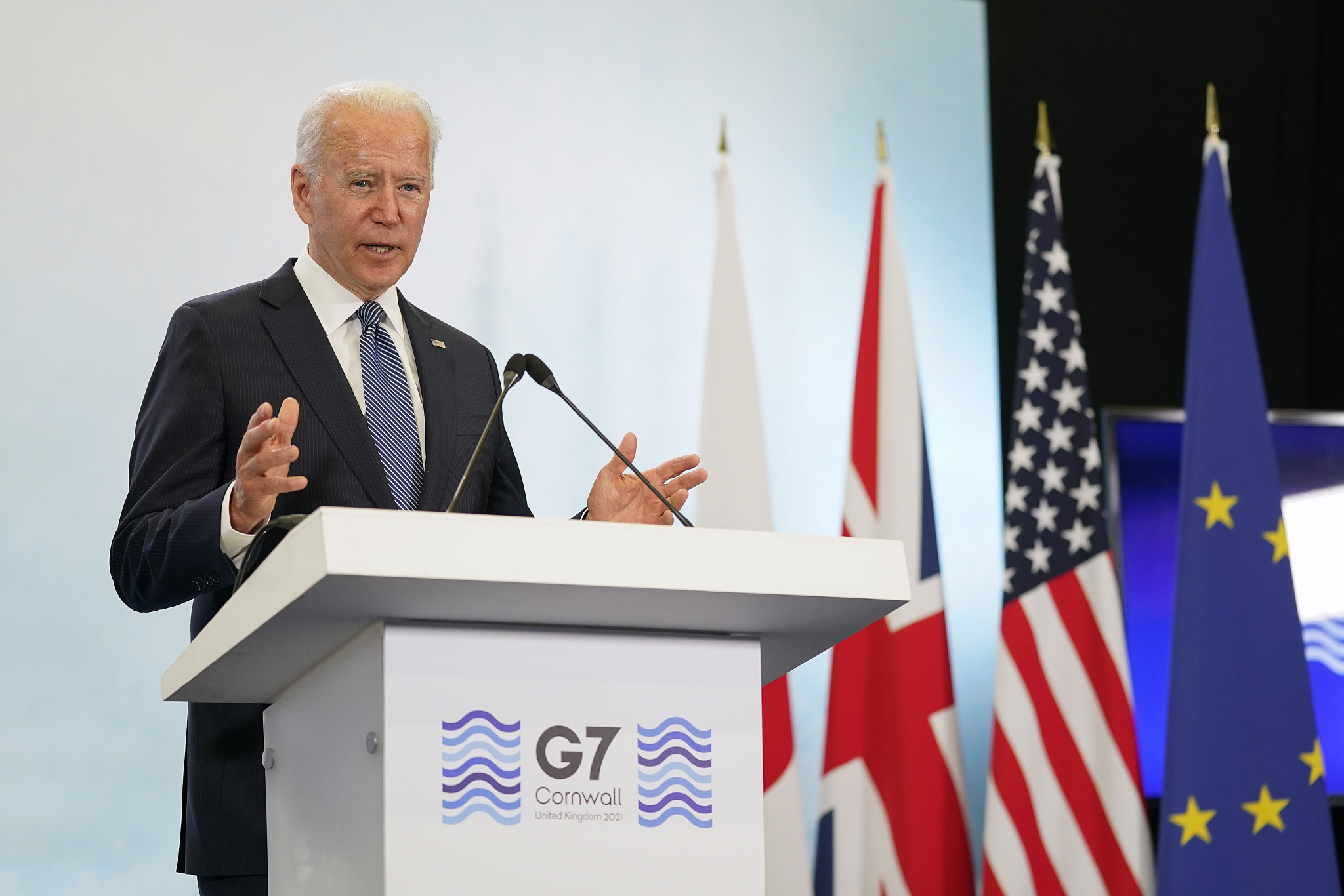The United States is a "sanctimonious superpower" using Western values as a disguise to apply double standards to its allies and rivals, a German expert said.
Michael Luders, author of the book "The Sanctimonious Superpower: why we need to step out of the U.S. shadow," said that the U.S. wants Europe to take its side against China and Russia in the name of freedom, democracy and human rights, a narrative which frames Washington's rivals as enemies of the West, when most Europeans prefer a neutral position.
"The U.S. only measures other countries by two different standards: the good guys, the West and its allies; and the bad guys, Russia and China, the geopolitical rivals of the West," Luders said in a recent interview with Global Times, citing the example of the country's different treatments of American whistleblower Edward Snowden and dissidents in other countries.
Luders also pointed to the presence of NATO warships in the Asia-Pacific region, which the U.S. and its allies take for granted but would see as aggression if China did the same.

The British aircraft carrier HMS Queen Elizabeth and its strike group will visit Japanese ports in September for joint NATO exercises, July 20, 2021. /CFP
The British aircraft carrier HMS Queen Elizabeth and its strike group will visit Japanese ports in September for joint NATO exercises, July 20, 2021. /CFP
When President Joe Biden took over from Trump's isolationist White House, it was widely expected that the U.S. would return to multilateralism and restore alliances with its Western allies. Six months into the Biden presidency, some observers have noticed that the Democrat president is continuing the previous administration's "America First" approach.
"Biden behaved politely and looks like he is open to the Europeans. However, he is still taking the 'America First' approach," Luders said.
At the height of the U.S.-China trade war started by former president Donald Trump, Washington pressured its European partners to cut back economic cooperation with Beijing, notably with regard to the 5G telecommunications system provided by China's Huawei. That objective has not changed under Biden, even though the U.S. was itself caught spying on members of the European Union.
Meanwhile, a world divided along ideological lines is taking shape.
In his address to the Congress in April, Biden described his country's relationship with China as a "once-in-a-generation" competition to win the 21st century.
Internationally, the U.S. has been promoting a narrative of "democracy versus authoritarianism" through multilateral platforms such as the Group of 7, urging allies to take the U.S. side against China and Russia for shared "values."

U.S. President Joe Biden speaks during the G7 Summit at Cornwall Airport in Newquay, England, June 13, 2021. /CFP
U.S. President Joe Biden speaks during the G7 Summit at Cornwall Airport in Newquay, England, June 13, 2021. /CFP
This new ideological dimension was echoed in the recent report passed by a majority of the European Parliament's Foreign Affairs Committee. The report called for a new EU-China strategy "that unites all member states and shapes relations with Beijing in the interest of the EU as a whole, while defending our values and promoting a rules-based multilateral order."
"One of the main reasons the U.S. is emphasizing values and the clash between 'democratic' and 'authoritarian' systems is because it needs a mobilizing tool both domestically and internationally," Jie Dalei, an expert in international relations at the School of International Studies, Peking University, told CGTN. "For a long-term competition strategy to work, ideology is a convenient tool."
Nevertheless, the previous U.S. administration was no less ideologically predisposed when it comes to China – if not more extreme – despite Trump's own disinterest in those ideas, Jie added.
"But for it to be convincing, the U.S. needs to do right by those values itself in domestic and international matters," he said.
In a June 30 commentary by Washington-based think tank Cato Institute, the authors called out the U.S. government for the humanitarian crises its economic sanctions have caused in Cuba, Iran, the DPRK, Syria, and Venezuela, since none has resulted in political changes in those countries the U.S. has deemed geopolitical targets.
"These nations all suffered increased hardship. Yet the people who suffered the most were at the bottom economically," the commentary observed.
"The U.S. is a world power that claims to act in the name of freedom, democracy and human rights but there is a wide gap between ideal and reality," Luders told the Global Times.
The country is sanctimonious, because "while it always cites higher values, in reality it pursues a kind of power politics that is tough and cold-blooded," he said.

